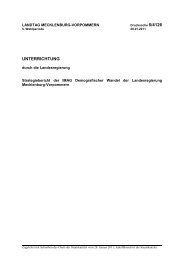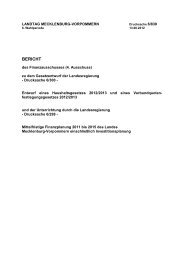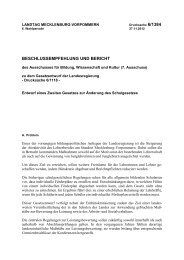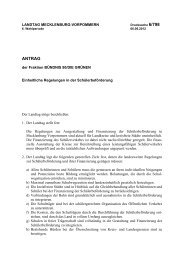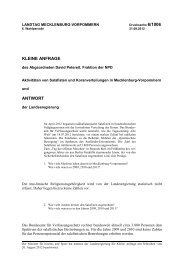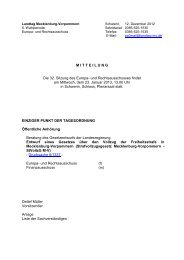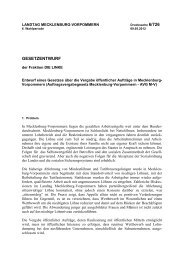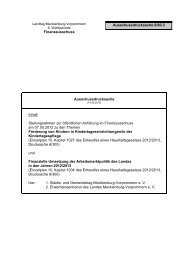Baltic Rim Economies - Baltic Port List
Baltic Rim Economies - Baltic Port List
Baltic Rim Economies - Baltic Port List
You also want an ePaper? Increase the reach of your titles
YUMPU automatically turns print PDFs into web optimized ePapers that Google loves.
Expert article 891 <strong>Baltic</strong> <strong>Rim</strong> <strong>Economies</strong>, 21.12.2011 Quarterly Review 5�2011<br />
Technologically-mediated communication in working life – a rich area for both<br />
basic and applied research<br />
By Maarit Valo<br />
The status and importance of basic scientific research and<br />
applied, innovation-focused research are prominent issues in<br />
today’s public discussion about science policy in Finland.<br />
Research activities that seek to generate applications and<br />
innovations are now favoured because of the economic climate<br />
in which we currently live. The Innovation Union, the flagship<br />
initiative of the European Commission, strongly emphasises<br />
the need to reinforce the European Research Area. The idea is<br />
increasingly to turn research into groundbreaking products and<br />
services. According to the Innovation Union this will be<br />
accomplished by improving financing for innovative<br />
companies, developing research infrastructures and<br />
strengthening business-academia collaboration, for example.<br />
Critical voices have risen to challenge the current keen<br />
interest in innovation-focused research. How can we secure<br />
the proper conditions for basic scientific research in Finland?<br />
Indeed, the great majority of inventions throughout time have<br />
arisen out of basic, long-term scientific research (i.e.<br />
fundamental, academic, blue sky research), motivated solely<br />
by the drive to create new knowledge. The goal of basic<br />
research is to know more and understand better, not create<br />
commercial value. Nevertheless, in the future such knowledge<br />
may prove to be invaluable for innovators.<br />
It has been claimed that in economically turbulent times it<br />
would be most sensible and long-sighted to invest in basic<br />
scientific research because that is what can be regarded as<br />
the foundation for innovations. However, basic and applied<br />
research are by no means opposites. Rather they form a<br />
continuum with a wide range of intermediate points between<br />
the two extremes. Besides, all kinds of research are needed in<br />
order to strengthen Finland’s academic standing. In the<br />
development plan for education and research for 2011–16<br />
published by the Ministry of Education and Culture, the need<br />
for a national science strategy in Finland that acknowledges<br />
both the value of basic research and the goal of supporting<br />
innovation development is clearly stated.<br />
Both basic scientific research and innovation-focused<br />
research are also needed to resolve challenges in our<br />
everyday working life. A good example is technologicallymediated<br />
communication at work. Today we increasingly use<br />
diverse technologies to communicate with our professional<br />
contacts, in colleague relationships, in teams and working<br />
groups, and for management and leadership purposes.<br />
Communication technologies – such ”social software” as<br />
instant messaging, audio conferencing, videoconferencing,<br />
and web conferencing – allow us to be in contact with one<br />
another in distance work and distributed organisations.<br />
Colleagues can be situated in different countries and represent<br />
different cultures and/or nationalities. In the <strong>Baltic</strong> area, in<br />
Europe and worldwide there are an increasing number of<br />
organisations where international and intercultural virtual<br />
teams are commonplace. Virtual teams are collaborative<br />
groups that are geographically and culturally distributed and<br />
rely on technologically-mediated communication. Members<br />
may occasionally meet face-to-face, but most of their<br />
interpersonal contacts are conducted through communication<br />
technologies.<br />
The early stages of research on technologically-mediated<br />
communication were coloured by profound doubts about the<br />
usefulness of online interaction. In the 1970s and 1980s it was<br />
thought that exchanging messages via computers was<br />
inefficient, impersonal, unfriendly or even hostile. It was<br />
generally believed that technical limitations (often referred to<br />
as reduced cues, cues filtered out, low social presence)<br />
45<br />
prevented computer-mediated contacts from being satisfactory<br />
or productive. Face-to-face interaction was considered to be<br />
the ideal form of communication in all circumstances.<br />
Today we know better. Research has shown that the<br />
characteristics of technology do not hinder, restrict or disturb<br />
communication processes or outcomes. Technology does not<br />
determine the ways we interact with one another; rather, we<br />
are quite flexible and inventive in using technological devices<br />
and crossing the barriers they originally were thought to create.<br />
Numerous studies have revealed that worthwhile online<br />
interaction depends more on social and cultural factors as well<br />
as on interpersonal and group dynamics than on the<br />
technology itself. Communicative functions and the tasks in<br />
question are also decisive. Research on virtual teams has<br />
shown that the quality of teaming is conditional on a large<br />
number of factors, technology being only one of them. Even<br />
the simplest asynchronic e-mail may be experienced as an<br />
effective and rewarding tool. Moreover, communication<br />
technologies are now mobile and ubiquitous, offering more<br />
possibilities than ever before.<br />
In research on technologically-mediated communication,<br />
studies on technology users’ reactions and behaviour are at<br />
the heart of basic scientific research. Out of pure curiosity,<br />
researchers have observed and analysed the ways people<br />
interact with one another via technologies. Much of this<br />
research has been conducted in experimental laboratory<br />
settings by analysing ad-hoc groups of university students.<br />
However, findings on interactional processes depend<br />
considerably on the context in which the studies have been<br />
conducted. This is why more research should be carried out in<br />
working-life contexts, for example in real virtual teams.<br />
Basic research on technologically-mediated<br />
communication could truly benefit from closer ties to applied<br />
research activities. Communication technologies involve a<br />
large number of devices and software, and it is of crucial<br />
importance to develop them on the basis of users’<br />
experiences. Solutions that will support collaborative<br />
interaction, facilitate teamwork, develop team leadership and<br />
enhance knowledge management in virtual contexts are<br />
waiting to be invented. Basic research and innovation-focused<br />
research should seek more collaboration for their mutual<br />
benefit.<br />
Maarit Valo<br />
Professor, Department of<br />
Communication, University<br />
of Jyväskylä<br />
Chair of the Finnish Union of<br />
University Professors<br />
Finland<br />
� Pan-European Institute � To receive a free copy please register at www.tse.fi/pei �




